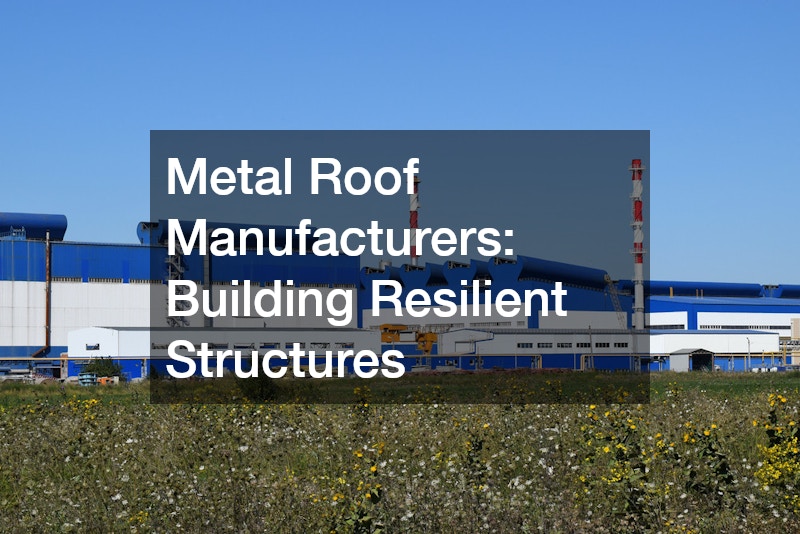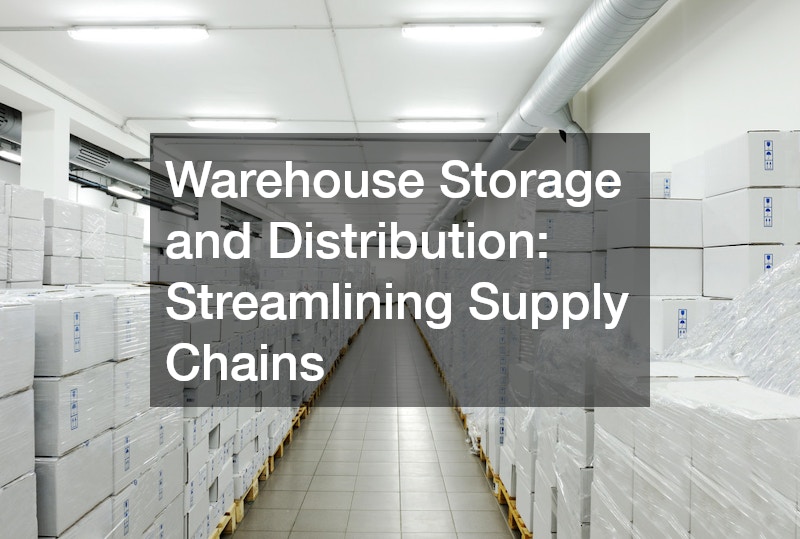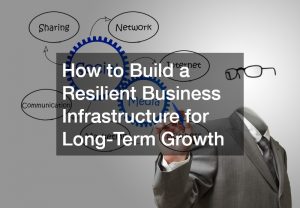
Introduction
A resilient business infrastructure is vital for sustaining long-term growth. It serves as the backbone of a company’s operations, ensuring that all parts of the business work together efficiently and effectively. A resilient infrastructure minimizes downtime and enhances operational efficiency.
Businesses that invest in strong infrastructure can better support long-term goals. According to Forbes, 85% of businesses view infrastructure as a crucial factor in successfully scaling operations. By focusing on key infrastructure elements, businesses can achieve sustainable growth.
This article will explore several components of building a resilient business infrastructure. We will discuss the role of expert guidance, enhancing physical infrastructure, optimizing storage, safeguarding operations, building a reliable future, and more. Each section will provide actionable insights and practical examples.
The Role of Expert Guidance in Building Resilience
Technology Advisors and Consultants: Laying a Strong Digital Foundation

In today’s rapidly changing business world, the role of technology advisor and consultants cannot be overstated. These experts help identify technology gaps and implement solutions that drive operational efficiency. Consulting with professionals to optimize digital infrastructure is essential for adaptability.
Hiring consultants can make a significant difference. They bring expertise in integrating cutting-edge technologies such as AI for supply chain management, reducing errors, and enhancing efficiency. By automating workflows and adopting cloud solutions, businesses can remain competitive.
Statistics support the effectiveness of technology advisors. According to McKinsey, companies employing technology consultants see a 20% reduction in operational costs. This is due to streamlined processes and optimized resource allocation. Investing in expert guidance is thus a strategic move toward building business infrastructure for business success.
Enhancing Physical Infrastructure for Business Durability
Business Sign Makers: Boosting Brand Visibility and Navigation
Business sign makers are crucial for enhancing brand visibility. Clear and consistent signage not only improves customer experience but also strengthens brand recognition. Investing in high-quality signs is a key component of resilient infrastructure, enabling businesses to stand out in competitive markets.
Durable materials like weather-resistant LED signs ensure longevity and cost-effectiveness. Maintaining uniformity across signage enhances brand cohesion and customer navigation. For instance, a retail chain implemented uniform signage and saw a 15% increase in foot traffic.
Working with professional business sign makers who understand branding needs can make all the difference. They offer insights into the latest signage trends and technologies, ensuring businesses remain relevant and attractive to potential clients. This approach aligns with the broader strategy of building a resilient business infrastructure.
Office Flooring: Balancing Durability and Aesthetics

The choice of office flooring is more significant than it might seem. High-quality, durable flooring contributes to a professional environment and requires minimal maintenance. Businesses should consider options like polished concrete or luxury vinyl, which are ideal for high-traffic areas.
Durable flooring options reduce maintenance costs and help maintain a professional image, which boosts client confidence. Additionally, advanced materials used in modern office spaces are designed to be sustainable, aligning with the trend toward eco-friendly infrastructure development.
As part of enhancing employee experience, investment in ergonomic anti-fatigue mats must not be overlooked. These contribute to employee wellness by reducing fatigue from long hours of standing. Overall, a well-thought-out choice in office flooring is a cost-effective step toward long-term growth.
Metal Roof Manufacturers: Building Resilient Structures

Partnering with metal roof manufacturers is a strategic move in building durable and energy-efficient structures. Metal roofs offer an impressive lifespan of 40-70 years, compared to just 15-20 years for traditional asphalt roofs.
By opting for metal roofing, businesses can enjoy lower maintenance requirements and reduced energy costs. This investment not only supports operational efficiency but also aligns with sustainability goals. Metal roof manufacturers provide tailored roofing solutions that enhance the durability and aesthetics of a building.
Extended warranties from metal roof manufacturers further ensure peace of mind for business owners. This component of physical infrastructure contributes significantly to the overall resilience needed for long-term business success.
Manufactured Pavers: Durable Solutions for Outdoor Spaces
Manufactured pavers present a durable solution for enhancing the functionality and aesthetics of outdoor spaces. They are essential components in reducing long-term maintenance costs and improving curb appeal.
Businesses opt for permeable pavers to manage water runoff effectively. These pavers prevent water puddles and reduce flood risks, contributing to environmental sustainability and infrastructure resilience.
Moreover, well-maintained outdoor spaces with high-quality manufactured pavers can reduce liability issues stemming from uneven surfaces. This proactive approach aligns with the goal of building a resilient business infrastructure that supports long-term growth.
Optimizing Storage and Logistics for Scalability
Warehouse Storage and Distribution: Streamlining Supply Chains

Warehouse storage and distribution are integral to streamlining supply chains. Efficient storage systems help reduce delays and improve inventory management, supporting operational scalability. By organizing warehouse logistics effectively, businesses can save on costs and enhance service delivery.
Implementation of vertical racking systems, automated storage, and inventory tracking software are recommended strategies. These technologies enhance the speed and accuracy of inventory handling, leading to reduced supply chain disruptions and increased customer satisfaction.
Collaboration with warehousing experts ensures optimal storage solutions are tailored to business needs. According to Deloitte, streamlined storage can lower supply chain costs by up to 30%, further supporting the building of a resilient business infrastructure.
Field Service Support: Keeping Operations Running Smoothly
Field service support is key to maintaining uninterrupted business operations. Timely maintenance and repairs reduce downtime and ensure that business processes run smoothly at all times. Adopting efficient field service management systems aids in tracking and scheduling necessary tasks.
Businesses equipped with dedicated field service teams report fewer equipment downtimes, enhancing productivity. These teams provide trained professionals who understand the intricacies of complex systems and expedite solution delivery when issues arise.
Investing in field service support as part of business infrastructure safeguards operational continuity. It ensures that unforeseen challenges do not impede long-term growth—a critical factor in building a resilient business infrastructure.
Safeguarding Operations with Reliable Systems
Industrial Generator Repair and Maintenance: Powering Through Outages
Reliable power supply is vital to business continuity, especially in emergencies. Industrial generator repair maintenance constitute the backbone of a reliable electrical infrastructure. The presence of generators prevents costly downtime during power outages, making them indispensable.
Businesses are encouraged to schedule routine maintenance while investing in automatic testing systems. This foresight ensures that any potential issues are addressed before they compromise operations. Additionally, standby generators provide the reliability necessary to safeguard against power challenges.
A manufacturing unit that incorporated a reliable backup generator framework reduced losses by 40% during outages. Such examples highlight the importance of business infrastructure in ensuring seamless operations. Building a resilient business infrastructure must prioritize power continuity.
Commercial Storefront Framing: Structuring for Safety and Aesthetics
Commercial storefront framing plays an integral role in enhancing business façade durability and aesthetic appeal. Quality frames provide strength against weather elements, ensuring the storefront withstands environmental challenges.
Energy-efficient glass and aluminum frames are favored for their cost savings and superior appearance. Adopting advanced materials not only contributes to the building’s aesthetics but also offers functional benefits with energy reductions.
Ensuring compliance with local building codes and safety standards is necessary. Investing in robust commercial storefront framing aligns with an overall strategy to fortify business infrastructure against environmental and structural challenges.
Whole-Building Cleaning with Commercial Janitorial Supplies
Maintaining clean business environments is essential for employee productivity and customer satisfaction. Utilizing eco-friendly, high-efficiency commercial janitorial supplies emphasizes a commitment to sustainability while ensuring sanitary spaces.
Clean working environments are directly linked to enhanced productivity. The Harvard Business Review notes that businesses with clean environments witness a 12% boost in employee productivity, underscoring the impact of proper cleaning supplies.
Partnering with vendors for consistent supply of commercial janitorial products ensures businesses meet their cleanliness standards. This approach supports a healthy workplace and resonates with broader infrastructure resilience initiatives focused on long-term viability.
Building a Resilient Future
Long-Term Partnerships with Reliable Vendors and Experts
Establishing long-term partnerships with reliable service providers is crucial for consistent operational support. These collaborations ensure timely updates, product availability, and efficient problem resolution, fostering a stable business ecosystem.
By entering contracts with dependable vendors, businesses secure strategic resources that contribute to seamless operations. This proactive approach prevents disruptions and supports infrastructure scalability, essential for sustained growth.
Developing relationships with reliable experts strengthens a business’s ability to quickly adapt to changes. Such partnerships serve as a cornerstone in business infrastructure , where dependable vendor support aligns closely with long-term strategic objectives.
Sustainability Practices for Infrastructure
Businesses adopting sustainable infrastructure practices reap numerous financial and reputational benefits. Energy-efficient lighting, renewable materials, and waste management initiatives contribute not only to cost reduction but also to brand reputation enhancement.
Sustainability is becoming a priority as consumers increasingly seek environmentally responsible companies. By integrating green practices into core operations, businesses demonstrate a commitment to sustainability that resonates with ethical consumers.
Businesses committed to sustainability achieve significant operational savings. Companies implementing sustainable practices report saving 15-20% on utilities annually. This aligns with the broader objective of building business infrastructure by focusing on environmentally responsible infrastructure.
Seasonal Checklist for Infrastructure Maintenance
- Spring: Evaluate signage, roofing, and outdoor pavers.
- Summer: Inspect HVAC, field services, and office flooring.
- Fall: Schedule generator maintenance and warehouse audits.
- Winter: Test emergency systems like generators and janitorial supplies.
Handling infrastructure maintenance seasonally ensures each component receives appropriate care. Planning maintenance activities per season allows businesses to address climate-specific issues while maintaining efficiency, safeguarding infrastructure investments.
Regular checks and maintenance help identify potential weaknesses before they evolve into major disruptions. Allowing time for scheduled evaluations strengthens operational integrity, and organizations that consistently handle these seasonal evaluations experience fewer downtime events.
Employing seasonal checklists forms part of business infrastructure for long-term growth. Proactive attention to infrastructure aligns with broader strategies that ensure business entities achieve sustained success across various time horizons.
Tips for Finding the Right Experts
Finding the right experts requires careful evaluation. Checking for certifications and experience ensures that professionals are qualified to deliver competent service. Businesses should seek credentials and specific training relevant to their industry needs.
Online reviews provide insights into past client experiences. It’s beneficial for companies to read testimonials and request references. Positive feedback often indicates reliability, while negative reviews may signal areas of concern.
Obtaining quotes from multiple vendors enables comparative analysis. Comparing cost, service breadth, and solution quality helps in making informed decisions. Businesses that take these steps are more likely to find appropriate business partnerships.
FAQs
- How often should I schedule generator maintenance?
Routine checks every 6 months and after significant use. - What are the benefits of metal roofs?
Durability, energy efficiency, and minimal maintenance. - How can I improve warehouse efficiency?
Invest in automated systems and proper racking solutions.
Frequently asked questions provide clarity on common infrastructure issues. Scheduling regular generator maintenance is key to reliable backup power systems. Metal roofs excel due to their durability, energy benefits, and minimal upkeep requirements.
The warehouse sector can increase efficiency by embracing automation and structured racking. Automated systems optimize storage, improve accuracy, and minimize delays, making them vital for any efficient and scalable logistics framework.
Providing clear, detailed responses to FAQs helps businesses make informed decisions, ensuring that infrastructure efforts remain aligned with business infrastructure priorities. Clarity and accessible information facilitate broader understanding and facilitate strategic objective achievement.
Conclusion
Investing in a resilient business infrastructure is imperative for sustained growth. This in-depth exploration reveals the numerous steps businesses can undertake to enhance operational efficiency and support long-term objectives. Prioritizing infrastructure development reduces costs and positions organizations for future challenges.
From optimizing storage solutions to partnering with competent vendors, each step contributes to a robust framework. These actions amount to significant competitive advantages that enable businesses to weather economic fluctuations more seamlessly.
As a final step, undertake an infrastructure audit to identify immediate improvement opportunities. These targeted actions will establish a strong foundation supporting business infrastructure growth through an ever-dynamic business landscape. Businesses equipped with resilient infrastructure gain assurance in their operational capability to adapt and succeed.



